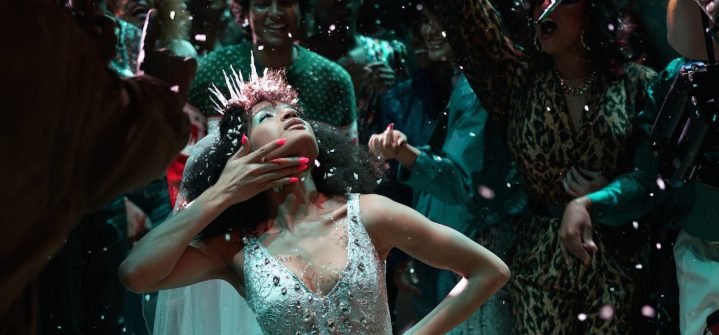Cast & Crew of ‘Pose’ Have One Message for the NAACP: Black Trans Lives Matter

Indya Moore as Angel in 'Pose' season 1, episode 3. Photo by Sarah Shatz. Courtesy of FX
A new pledged donation on the part of the Walt Disney Company has encouraged the cast and crew of Emmy-nominated Pose to speak out in support of what well may be the FX drama’s core philosophy: Black Trans Lives Matter. Creator Steven Canals as well as cast members Indya Moore and MJ Rodriguez tweeted the same statement: “Being that Disney is the parent company of FX, the home to POSE (a show centering Black & Afro-Latin Transgender women),” it read, “I hope the @NAACP is committed to investing in Black Trans safety, while supporting & affirming Black Trans women with this money. #BlackTransLivesMatter.”
The message comes after the NAACP has all but ignored the groundbreaking drama for the last two years of their Image Awards. Only Emmy winner Billy Porter has earned a nomination, an issue the show’s producer and director Janet Mock singled out as endemic to broader issues: “I, too, am disappointed that our own refuses to truly see us,” she tweeted following 2019’s nominations, “largely I assume, b/c we are as unapologetically trans & queer as we are black.”
Per the Human Rights Campaign, “in 2018, advocates tracked at least 26 deaths of at least transgender or gender non-conforming people in the U.S. due to fatal violence, the majority of whom were Black transgender women.” Thus, the call to center Black Trans lives in conversations stemming from the Black Lives Matter movement, is but a call to acknowledge an oft-ignored segment of a population who bears the brunt of the very violence and brutality being protested right now.
Moore, who’s long centered their activism in their work, has been using their platform to amplify activist voices while also speaking out and giving advice about how non-Black allies can best enter these conversations. It’s not about pitting the queer community against the Black community (especially because, as Pose shows, the two cannot be seen as mutually exclusive) but about acknowledging there is work to be done that requires thinking about these intersectional identities in pressingly urgent ways.
